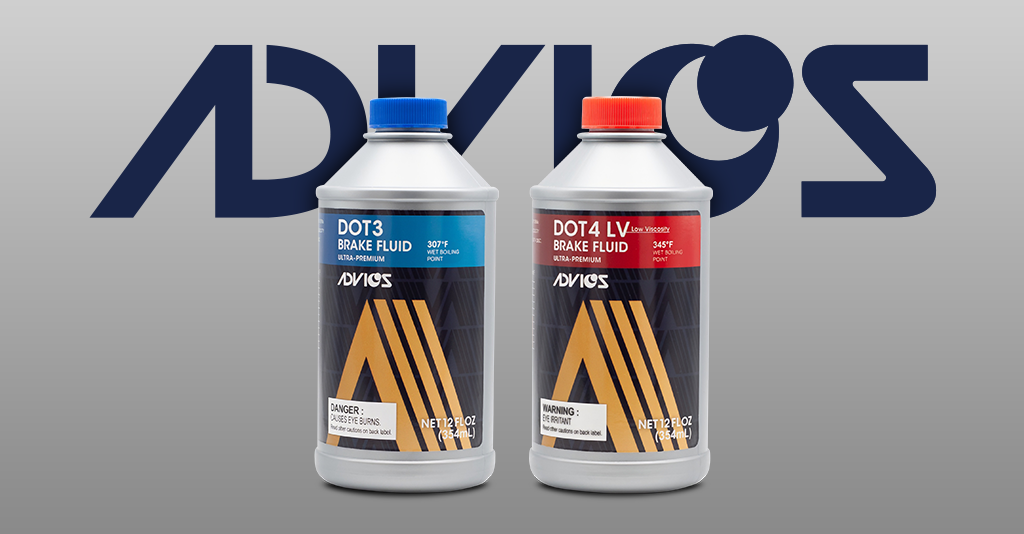
February 1, 2022
When you think about the braking system of a vehicle, you probably think about the major parts you see when removing the wheel: brake pads, rotors, calipers and maybe hydraulics. However, one of the most important parts of the system isn’t visible: brake fluid.
Brake fluid comes in several formulations for different applications and plays a big role in the vehicle’s ability to stop safely.
What is Brake Fluid?
Brake fluid is an automotive chemical that is used in the hydraulic braking system of the vehicle. Within that hydraulic system, the brake fluid aids in amplifying force applied to the brake pedal, turning that force into pressure on the vehicle’s brakes, causing a stop.
Without brake fluid, it would be nearly impossible to stop a car with a simple press on the brake pedal!
What Does Brake Fluid Do?
Brake fluid does several important things inside the hydraulic system. It is stored inside the master cylinder, where it is sent through the brake lines and into the calipers when the brake pedal is depressed.
Because of brake fluid, the calipers are then able to squeeze the brake pads against the rotors, bringing the vehicle to a stop. Depending on how hard the brake pedal is depressed, the vehicle will either slow or come to a complete stop. Brake fluid also helps lubricate all the moving parts inside the braking system as well as protecting against rust and other corrosives.
What is the Difference Between DOT 3 vs. DOT 4 Brake Fluid?
Interestingly enough, there are no “standard” formulas for brake fluid. While all brake fluids are created to help stop the vehicle as explained above, each manufacturer may produce a brake fluid that contains different compounds or chemicals. That’s why it’s important to choose an ultra-premium product like ADVICS brake fluid, so you can be sure that the brake fluid you’re using is made of the best available materials, which help to increase the longevity of all brake system parts and produce a safe, reliable stop every time.
With that said, there are two primary differences between DOT 3 and DOT 4 brake fluid formulas, no matter the manufacturer or brand:
- DOT 3 brake fluid will normally absorb less water from the air in the braking system than DOT 4, over time. This means that DOT 3 brake fluid will have to be changed less frequently than DOT 4.
- DOT 4 brake fluid has higher wet/dry boiling points than DOT 3, making it a better choice for higher temperature braking applications, like in high-performance vehicles.
In summary, the main difference between the two formulas is their ability to handle heat and water absorption within the braking system.
Each vehicle will have a specific requirement for brake fluid formula, so it is important to establish this when performing an initial inspection on the vehicle’s braking system. Remember, different formulas of brake fluid (DOT 3, DOT 4, etc.) should never be mixed, as this can cause the braking system to malfunction, due to compatibility issues.






